A “death squad” in blue helmets
How members of the Rapid Action Battalion, a Bangladeshi “death squad”, become United Nations peacekeepers — investigation by Netra News, Deutsche Welle and Süddeutsche Zeitung.
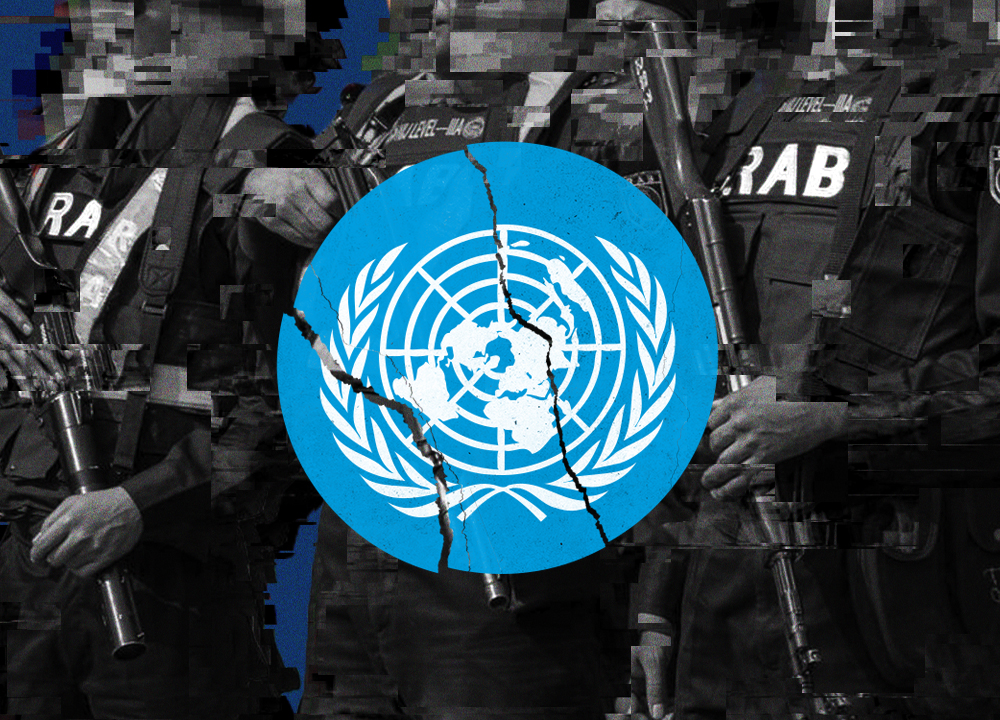
On a bright August day in 2022, a 187-member Bangladeshi peacekeeping contingent gathered at their camp in the north-western region of the Central African Republic, a country long ravaged by civil war. Lizbeth Cullity, a senior civilian official with the UN peacekeeping mission, walked solemnly across the red soil as Bangladeshi troops presented their guard of honour. Cullity, a seasoned UN veteran with a long history in human rights assignments, proceeded to award several soldiers the UN medal, honouring their service to “the most affected and the most vulnerable” during their mission.
Among the honorees was Major Masud R. from the Bangladesh Army, though Cullity likely did not know his history. Immediately before his deployment to the Central African Republic, Major Masud had served in the Rapid Action Battalion (RAB), an elite Bangladeshi police unit accused of widespread human rights abuses, including hundreds of extrajudicial killings, enforced disappearances and torture. Major Masud was a senior figure in the RAB’s Intelligence Wing, notorious for its brutal interrogation techniques, which include hanging detainees upside down, waterboarding, beatings and administering electric shocks to sensitive body parts.
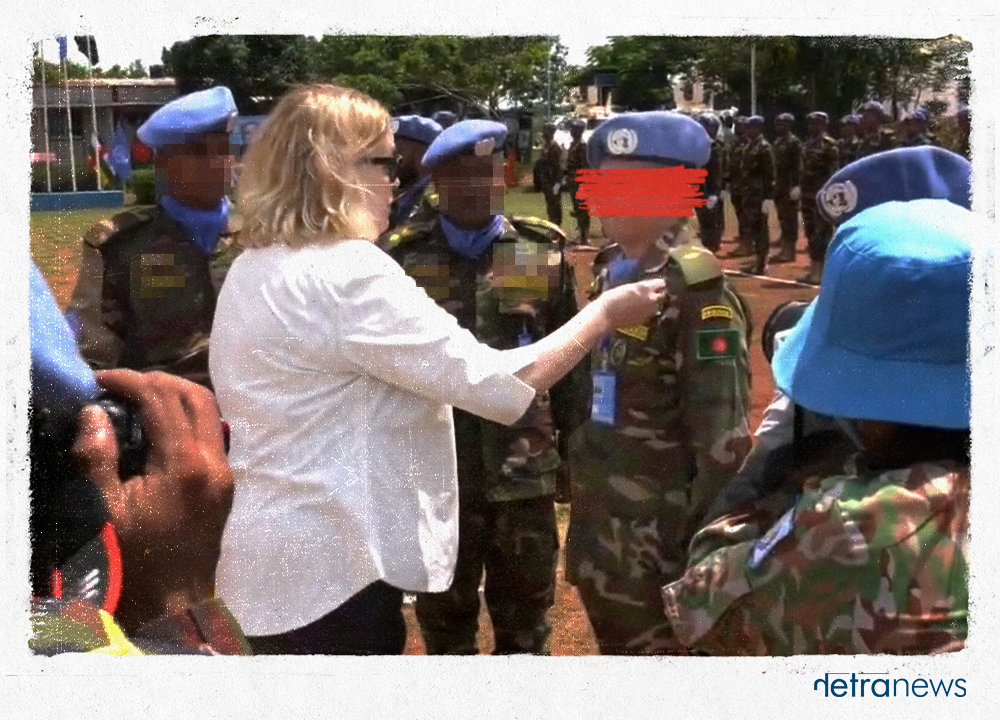
A joint investigation by Netra News, Deutsche Welle, and Süddeutsche Zeitung — which follows our investigation in 2023 — has uncovered that the deployment of this officer was far from an isolated case: more than 100 Bangladeshi military and police officers who had served with the RAB were later deployed to UN peacekeeping missions, including at least 40 within the last five years.
Their journey from wearing the all-black RAB uniform to donning the UN peacekeeper’s blue helmet highlights a profoundly flawed vetting process. One that allows individuals with potential histories of gross human rights violations to participate in peacekeeping operations intended to safeguard vulnerable civilian populations in conflict zones.
Deploying abusive military and police officers to protect endangered civilian populations “defeats the purpose of peacekeeping,” said Meenakshi Ganguly, deputy Asia director at Human Rights Watch.
Denounced as a “death squad”
The RAB’s dismal human rights record is hardly a secret. In 2014, Human Rights Watch labelled the unit a “death squad” and has since called for its disbandment. In 2018, the US State Department declared the unit ineligible for US security assistance after it failed to pass Leahy human rights vetting. Three years later, in December 2021, the US Department of Treasury went further and imposed Global Magnitsky sanctions on six top leaders of the unit and the RAB as a whole for alleged involvement in gross human rights violations. Within the United Nations, an independent panel of experts on enforced or involuntary disappearances cited reports on RAB’s involvement in such state crimes in 2017.
Last year, in April 2023, a joint investigation by Netra News and Deutsche Welle featured two RAB whistleblowers, both former commanders of the unit, who described the organisation’s methods of carrying out executions and abductions, implicating the highest level of the government in some cases.
Despite this overwhelming pile of incriminatory evidence and high-profile denunciations as a “death squad”, former RAB officers could slip through a broken vetting process to serve on lucrative UN peacekeeping missions in faraway lands. That is because the UN relies on the troop-contributing country’s government to filter out human rights abusers from such deployments — a system that, experts argue, is fundamentally flawed.
Black uniform to blue helmets
Some former RAB officers who transitioned into peacekeeping roles now find themselves haunted by the atrocities they once committed or witnessed. Among them is one of our whistleblowers. Deployed on a peacekeeping mission in an African country, he has recorded a video confession for us.
In his statement, the officer — whose identity and assignments have been corroborated by Netra News and its partners — shared chilling details of some of the killings and abductions he was involved in.
“After the bullet hit his skull, blood and brain fragments splattered on my uniform,” he recounted, describing the case of a cold-blooded killing. “I still have violent nightmares.”
However, the whistleblower is not the only former RAB officer who became a peacekeeper after committing grisly abuses. For months, Netra News and its partners conducted in-depth interviews with current and former military and UN officials in Bangladesh and abroad. We examined hundreds of pages of classified military files and deployment lists, and scoured social media platforms like Flickr, LinkedIn, and Facebook. Ultimately, we identified over 100 peacekeepers who had earlier served in the Rapid Action Battalion.
Among the UN peacekeepers we identified are two former RAB officers accused of either participating in or having command responsibility over severe abuses before their deployment to peacekeeping missions: Major Nayeem A. and Major Hasan T. We are withholding their full names and photographs for legal reasons.
Both officers served as influential deputy directors in RAB Intelligence Wing and are accused of personally participating in or sharing command responsibility over grave human rights violations, including enforced disappearances and torture.
Press reports implicated Nayeem A. in the enforced disappearance of three men in 2016 while he was a commander of a RAB company in northern Bangladesh. The following year, he was transferred to the Intelligence Wing at the RAB Headquarters in Dhaka. Between 2017 and 2019, he was promoted to deputy director of the wing. In 2022, we found him serving in MONUSCO, the UN peacekeeping mission in the Democratic Republic of Congo.
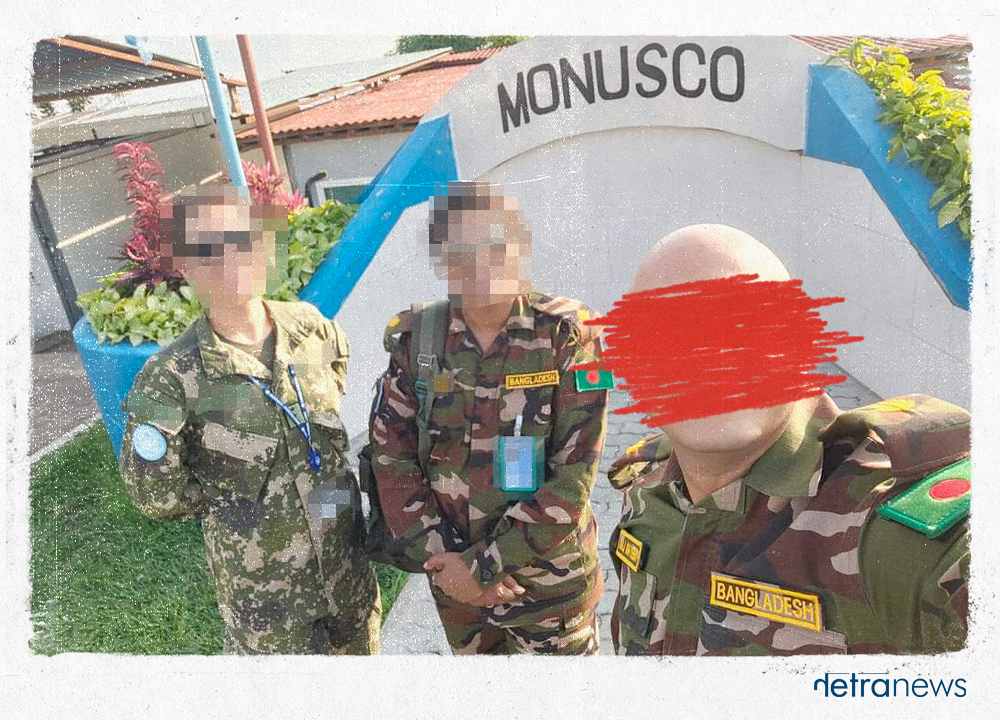
Hasan T. was described by a former colleague as one of the most influential officers to serve in the Intelligence Wing. He oversaw the unit’s surveillance operations, maintaining the organisation’s notorious digital surveillance infrastructure — allegedly used to facilitate abductions and killings. Given his senior position within the Intelligence Wing, he potentially shared command responsibility over or was privy to the goings-on at two notorious torture chambers at the RAB headquarters near Dhaka airport and RAB-1 headquarters in Uttara, according to his former colleague.
An avid runner in his personal time, Major Hasan uses a fitness tracking app to record his jogging sessions, and we located his profile in the app. In November 2020, he posted a selfie in front of the RAB headquarters while doing a half-marathon. One year later, in November 2021, he was seen jogging along Gamal Abdel Nasser Street in the city of Bangui, where he was deployed to serve in MINUSCA, the UN peacekeeping mission in the Central African Republic.
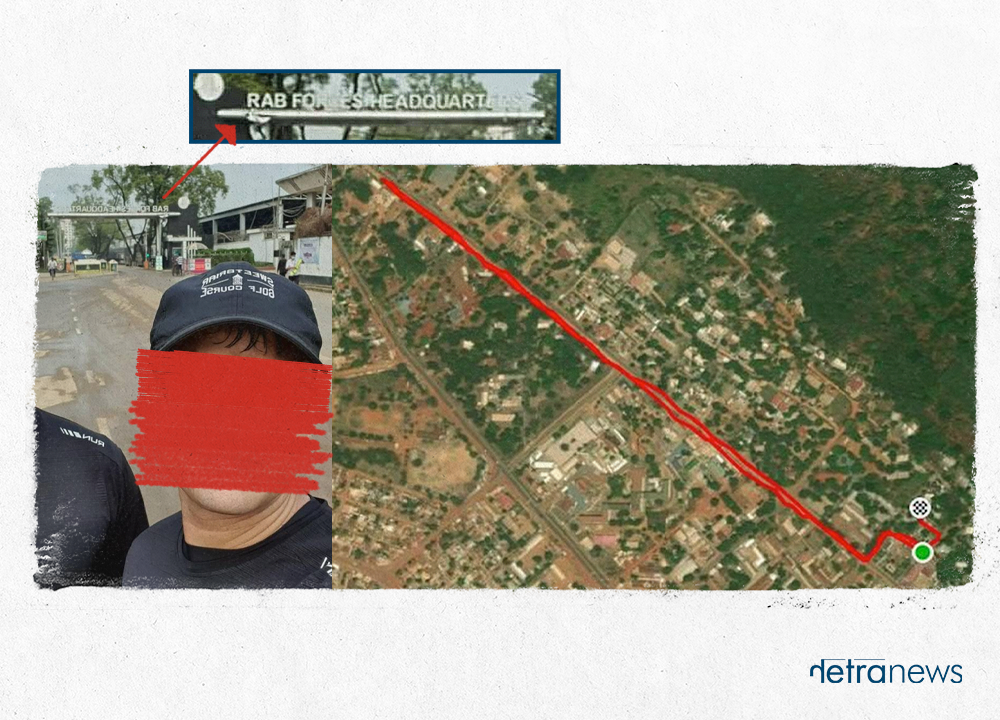
Vetting abusers
In a statement, the UN’s Department of Peace Operations (DPO) confirmed the deployments of Major Nayeem A. to the Democratic Republic of Congo and Major Hasan T. to the Central African Republic, although they noted a discrepancy regarding the date of birth for Major Hasan.
However, the DPO found no record of Major Masud R. in their database, despite UN video footage and photographs showing a senior UN official awarding him a medal during an August 2022 ceremony in the Central African Republic. The office also said that it does not track the unit-wise employment histories of peacekeepers in their respective home countries, thereby was unable to confirm how many RAB members have served in peacekeeping missions.
“The UN secretariat does not receive detailed information about the professional history of contingent members of former military or police units and, therefore, would not be able to confirm how many contingent members deployed by a particular member state served with specific units in that member state,” wrote a spokesperson for the DPO.
In 2019, the UN’s Committee against Torture, in its “Concluding observations on the initial report of Bangladesh,” expressed grave concerns about reports of torture, arbitrary arrests, unacknowledged detention, disappearances and extrajudicial killings by the RAB. The committee highlighted the lack of accountability for these violations and the legal impunity enjoyed by the forces, calling for an independent vetting procedure for all military and police personnel selected for UN peace missions. The committee recommended that “no person or unit implicated in the commission of torture, extrajudicial killing, disappearances or other serious human rights violations is selected for service.”
Despite the committee’s recommendations, the UN continues to rely on Bangladesh for the human rights screening and vetting process of officials deployed in peacekeeping operations.
“As far as I have seen, everyone has gone to [UN] peacekeeping after serving in RAB,” said one of the two RAB commanders who spoke to us in 2023.
Another whistleblower elaborated on why and how this happens, “RAB and the Bangladesh Army are two separate organisations. Unless something is communicated in writing from RAB to the Bangladesh Army [regarding human rights abuse], nothing will affect the career of an army officer, no matter what they did at RAB.”
The RAB does not directly recruit members; instead, it draws from the existing workforce of different security forces, most notably from military and police units.
In response to our questions, the UN peacekeeping spokesperson wrote that the troop-contributing countries provide relevant data on contingent personnel, including their personal and professional information, and this certification satisfies the requirements of human rights screening of the personnel.
The spokesperson also noted that the Bangladesh government certified Nayeem A. and Hasan T. “had not committed, or were alleged to have committed, violations of international human rights law or international humanitarian law.”
He acknowledged that the UN does “not have the resources to review the information.”
That is akin to “asking an abusive government” to determine whether an officer was abusive or not, said Meenakshi Ganguly of HRW.
“Some pretty brutal [troops]”
RAB has been instrumental to Bangladesh’s authoritarian government, led by Prime Minister Sheikh Hasina, as it has consolidated power over the past decade.
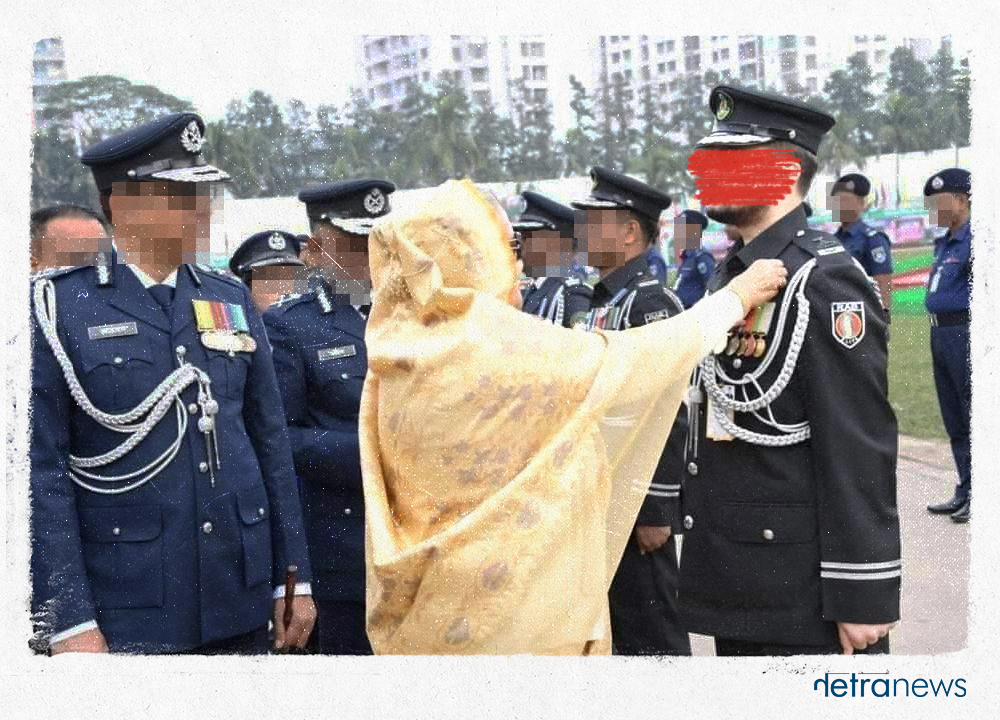
In an interview with Netra News and Deutsche Welle in 2023, a former RAB commander revealed, “The decision to engage with a political target would come from the Ministry of Home Affairs, that is, the minister would give this order. If the home minister has given an order, it is very unlikely that the prime minister of Bangladesh was not aware of it.”
We approached numerous current and former UN officials to discuss the issue on the record. Only Andrew Gilmour, a former UN Assistant Secretary-General for Human Rights, agreed to speak and bluntly acknowledged the shortcomings.
“If I was still in the UN, I probably wouldn’t be able to be this frank,” said Gilmour. “We get some really pretty useless troops and some pretty brutal ones as well.”
Because only a few countries are willing to send their troops on dangerous peacekeeping missions, troop-contributing states wield significant leverage over the United Nations when it comes to instituting an independent vetting process, the former UN Assistant Secretary-General added.
However, the UN’s failure not only rewards likely abusers with relatively high compensation, but it also threatens to undermine an emerging, rare, yet highly effective avenue of accountability for abuses committed by security forces in Bangladesh.
In December 2021, the United States government imposed financial and other targeted sanctions against RAB officials with specific allegations of committing or having command responsibility over serious abuses. The result was immediate: Bangladeshi human rights defenders have since reported a sharp fall in the number of alleged extrajudicial killings and enforced disappearances by the RAB and other security forces.The United States is a major contributor to the United Nations’ peacekeeping operations, providing more than $1.37 billion, or 25% of the total funds earmarked for these missions in 2024 alone. That means, while the US has been pushing for accountability from RAB on a bilateral level, it is also indirectly enabling RAB members’ deployments through UN missions at the same time.
No response
Netra News and its partners asked the government of Bangladesh and the individual officers named in this story for their comments. They did not respond.●